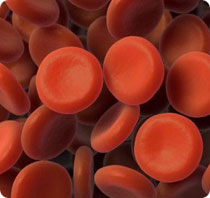

- What is Single Donor Platelets?
- Advantage of Single Donor Platelets over Random Donor Platelets
- Blood Donation v/s. Apheresis Blood Donation
- Availability of Platelets
What is Single Donor Platelets (SDP)?
It is possible to obtain only Platelets from a Donor by a process called ‘Apheresis’. Like in routine blood donation, 350 ml. of blood is drawn from the donor. This is sent to a special Blood Bag, which is housed inside the Apheresis Machine. The machine spins, separates the Platelets and sends the remaining blood components back to the donor’s body. This cycle is repeated 6 – 8 times and the whole process will take approx 60 to 90 minutes. Almost 300 ml. of Platelets is obtained in this manner from just one donor. The Platelets so collected are called Single Donor Platelets (SDP).
Advantages of Single Donor Platelets over Random Donor Platelets
Single Donor Platelets are more potent than Random Donor Platelets. 1 unit of Single Donor Platelets is equivalent to 6-8 units of Random Donor Platelets. Single Donor Platelets, being collected by a more efficient system of component separation, have a lesser chance of carrying other components like RBCs. They therefore become available to be transfused to a patient with any blood group. Considering that the life of Platelets is only 5 days, Single Donor Platelets ensure that there is no wastage, as they are collected against specific needs.
Blood Donation v/s Apheresis Platelet Donation
In Blood Donation, the donor donates 350/450 ml. of whole blood including RBCs, whereas in Platelet Donation the donor donates approx. 300 ml. of only Platelets.
There is a temporary drop in the Haemoglobin Count in the case of Blood Donation. The Donor will be told to take it easy for the next 24 hours. In the case of Platelet Donation, the donor loses only Platelets, which are primarily required in the event of a rupture of a blood vessel.
Unlike Blood Donation, the Apheresis Donor does not have any restrictions with respect to lifting heavy weights and rigorous physical exercises on the day of donation.
A Blood Donor cannot donate blood again for the next 3 months in India, whereas a Platelet Apheresis Donor can donate blood after 3 days in the event of an emergency.
The act of blood donation is completed in 3 to 10 minutes, whereas Platelet Apheresis Donation will take between 60 to 90 minutes.
Platelets that are available in Blood Banks are Random Donor Platelets. This will depend on the number of routine blood donations and the capability and intention of the Blood Bank for component separation. Single Donor Platelets depend on an Apheresis Donor, who normally comes against a specific need. Single Donor Platelets will not be available off the shelf of a Blood Bank.
Platelets have a life of only 5 days. Collecting a lot of Platelets may amount to wasting those which have not been used in 5 days. Blood Banks in India, which are mostly hospital-based, normally make an estimate of the likely off-take of Platelets and carries out separation of Platelets to that extent, during routine Blood Donation Drives. This also ensures saving on the extra cost of triple blood bags used for this purpose, as against single blood bag for ‘Whole Blood’.
Blood
Platelets
Blood Drive
Thal Minor
Thal Minor Screening Drive
Platelet Donor
Donate Blood
